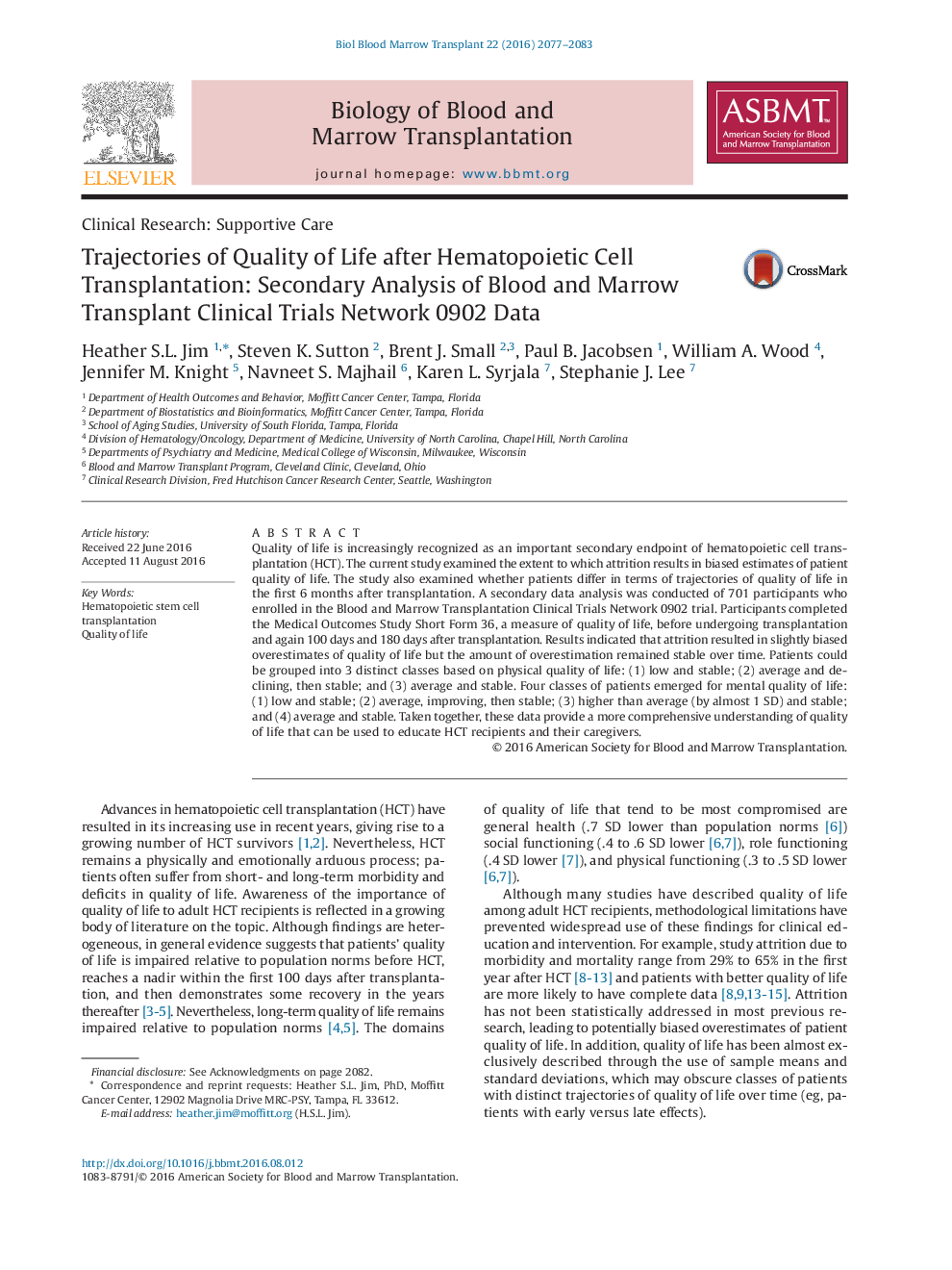| Article ID | Journal | Published Year | Pages | File Type |
|---|---|---|---|---|
| 5524159 | Biology of Blood and Marrow Transplantation | 2016 | 7 Pages |
Abstract
Quality of life is increasingly recognized as an important secondary endpoint of hematopoietic cell transplantation (HCT). The current study examined the extent to which attrition results in biased estimates of patient quality of life. The study also examined whether patients differ in terms of trajectories of quality of life in the first 6 months after transplantation. A secondary data analysis was conducted of 701 participants who enrolled in the Blood and Marrow Transplantation Clinical Trials Network 0902 trial. Participants completed the Medical Outcomes Study Short Form 36, a measure of quality of life, before undergoing transplantation and again 100 days and 180 days after transplantation. Results indicated that attrition resulted in slightly biased overestimates of quality of life but the amount of overestimation remained stable over time. Patients could be grouped into 3 distinct classes based on physical quality of life: (1) low and stable; (2) average and declining, then stable; and (3) average and stable. Four classes of patients emerged for mental quality of life: (1) low and stable; (2) average, improving, then stable; (3) higher than average (by almost 1 SD) and stable; and (4) average and stable. Taken together, these data provide a more comprehensive understanding of quality of life that can be used to educate HCT recipients and their caregivers.
Related Topics
Life Sciences
Biochemistry, Genetics and Molecular Biology
Cancer Research
Authors
Heather S.L. Jim, Steven K. Sutton, Brent J. Small, Paul B. Jacobsen, William A. Wood, Jennifer M. Knight, Navneet S. Majhail, Karen L. Syrjala, Stephanie J. Lee,
